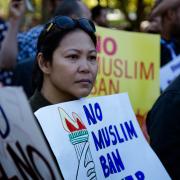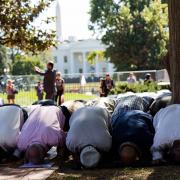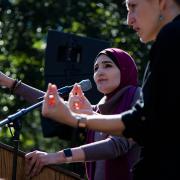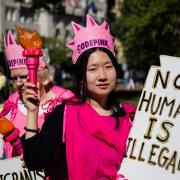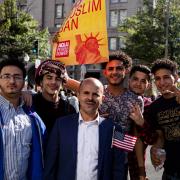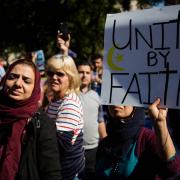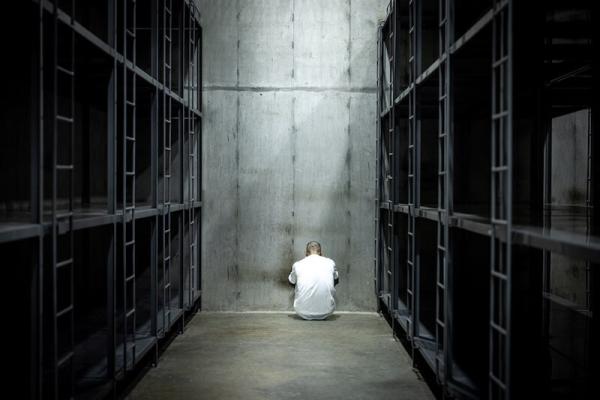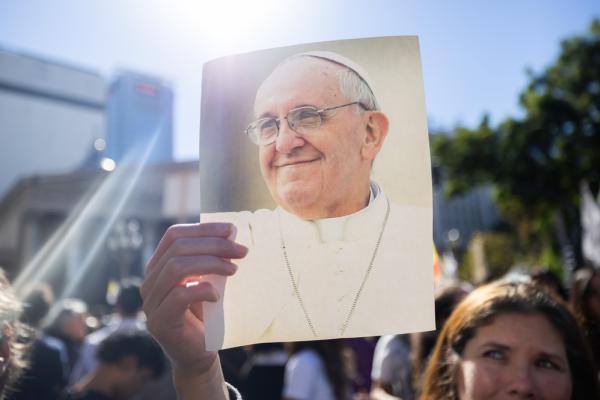On Oct.18, hundreds gathered at Lafayette Square in Washington D.C. to protest the third iteration of the Trump administration’s travel ban on majority-Muslim countries. The march, called the “No Muslim Ban Ever,” was organized by a coalition of national and local Muslim and civil rights groups. Protesters marched from Lafayette Square to Trump International Hotel, where a second round of speakers rallied the diverse crowd. People in hijabs or burqas stood next to people in suits or T-shirts.
On Oct. 17, hours before the action was set to take effect, two federal judges from Hawaii and Maryland halted the ban for a third time.
“The administration is going to challenge it [the court’s halt] and continue to try to make sure it [the ban] happens, ” said Isra Chaker, a speaker at the rally and a campaigns advisor at Oxfam America focusing on refugees.
But, during her speech, Chaker said that she had hope.
“With the two federal judges in Hawaii and Maryland blocking this iteration from going into effect, it’s hopeful, it’s a victory, for sure. But it’s also ... a very long road. Time and time again … we have these federal judges stepping up and serving the power of the people, [and] our administration continues to challenge them.”
img_6024-11.jpg
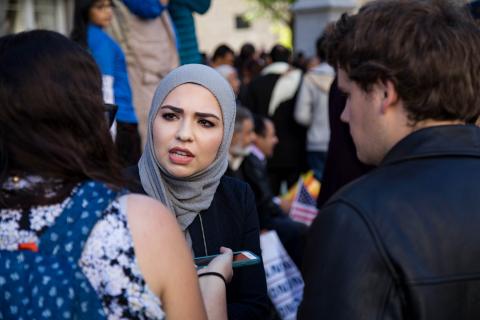
This is the third executive order issued by the Trump administration aimed at restricting travel to the U.S. The first order banned immigrants from Iraq, Syria, Iran, Libya, Somalia, Sudan, and Yemen. The second order, aimed at easing tensions, dropped Iraq from the list, lifted the indefinite restrictions on Syrian refugees, and claimed that Christian refugees would take priority. The third order added Chad, along with two non-Muslim majority countries, Venezuela, and North Korea, to the list.
Despite the inclusion of these countries, many said this new ban is still designed to discriminate against Muslims. The previous two bans were met with protest and challenges in federal courts. Judges Derrick K. Watson of Hawaii and Theodore D. Chuang of Maryland, who halted the second executive order, also blocked the third on a number of grounds: They cited that it violated the Establishment Clause of the Constitution, and highlighted how on the campaign trail, then-candidate Trump had directly called for a ban on all Muslim immigration.
Yusef Muse, a Somali refugee and another speaker at the rally, told the crowd about the impact the ban has had on his family. He emigrated to the U.S. in 1991 and hasn’t seen his parents in 23 years. In 2013, he filed a family reunification case, but his parent’s case was put on hold throughout the first and second versions of the “Muslim ban.”
“With the third version of this ban, we are unsure if my parents will ever get to see their grandchildren,” Muse said.
“What danger does an ailing 73-year-old grandfather pose?”
img_5851-9.jpg
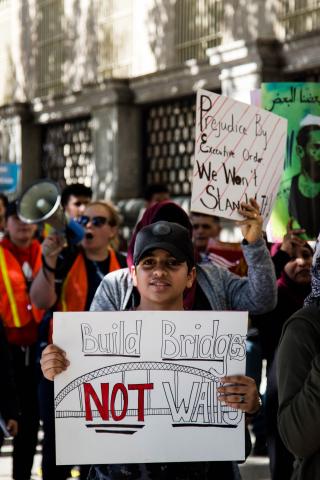
Muse believes that despite the Trump administration’s claim that this ban is all about security, it is clear that it is simply keeping families apart solely due to their religious beliefs.
Rayve, an attendee from San Francisco, agrees. He said he was concerned about how this administration is treating the most vulnerable citizens in the U.S.
“I am very concerned about the steps this administration is taking towards the most vulnerable citizens of our country,” said Rayave.
But he, too, has hope in the U.S. justice system.
“The ban will be repealed because the ban is unconstitutional. The ban is inhumane,” said Rayve.
Got something to say about what you're reading? We value your feedback!

